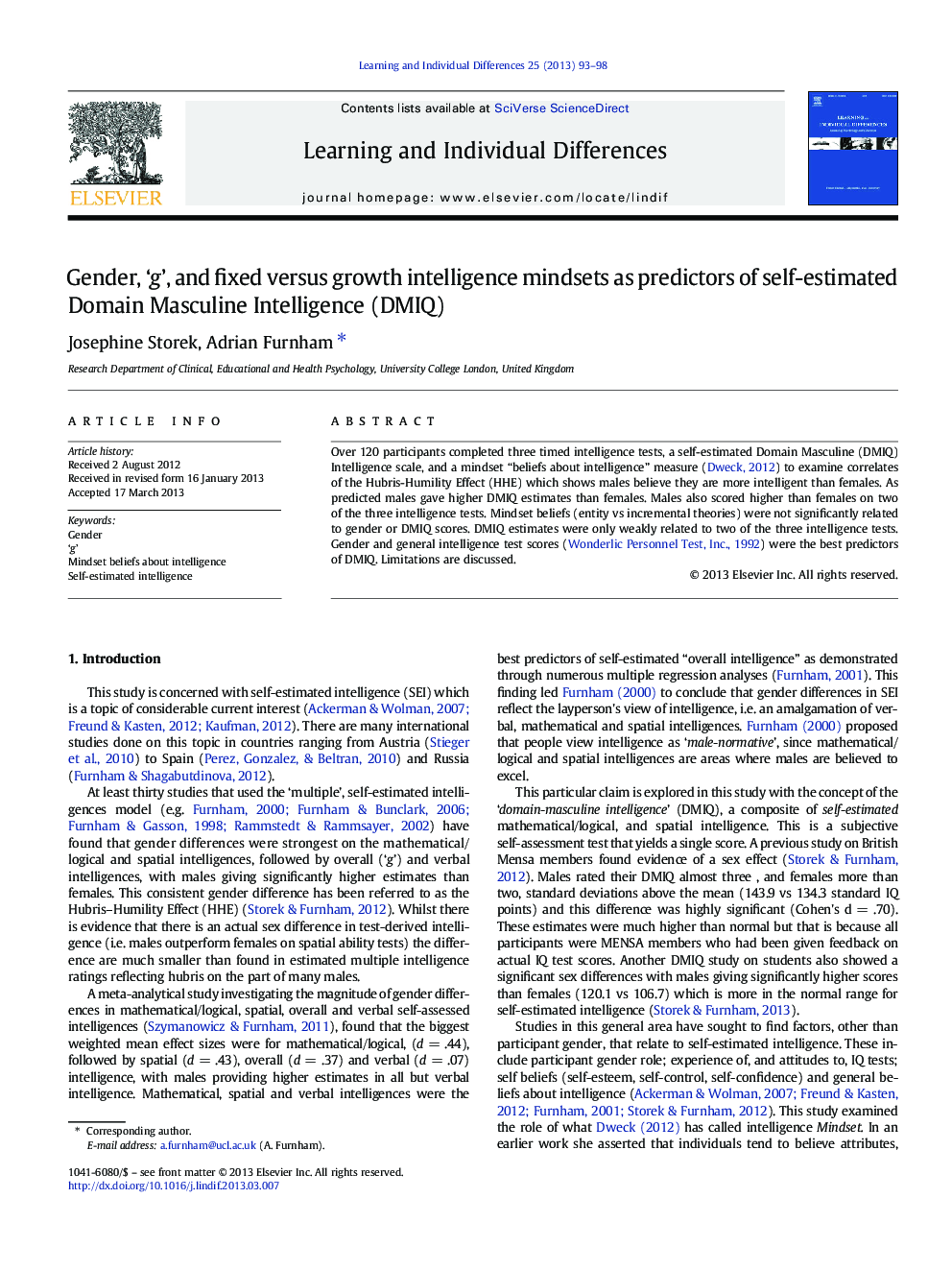| کد مقاله | کد نشریه | سال انتشار | مقاله انگلیسی | نسخه تمام متن |
|---|---|---|---|---|
| 365098 | 621107 | 2013 | 6 صفحه PDF | دانلود رایگان |

• There were sex differences as predicted in Domain Masculine Intelligence and intelligence scores.
• Intelligence beliefs (entity/incremental) did not correlate with DMIQ.
• Regressions showed gender was the strongest predictor of DMIQ.
Over 120 participants completed three timed intelligence tests, a self-estimated Domain Masculine (DMIQ) Intelligence scale, and a mindset “beliefs about intelligence” measure (Dweck, 2012) to examine correlates of the Hubris-Humility Effect (HHE) which shows males believe they are more intelligent than females. As predicted males gave higher DMIQ estimates than females. Males also scored higher than females on two of the three intelligence tests. Mindset beliefs (entity vs incremental theories) were not significantly related to gender or DMIQ scores. DMIQ estimates were only weakly related to two of the three intelligence tests. Gender and general intelligence test scores (Wonderlic Personnel Test, Inc., 1992) were the best predictors of DMIQ. Limitations are discussed.
Journal: Learning and Individual Differences - Volume 25, June 2013, Pages 93–98